Abstract
Doubts have been raised on theoretical grounds concerning the effect of BCG in tropical countries, where in most places a large proportion of the population have a naturally acquired tuberculin allergy of low strength and unknown (but almost certainly non-specific) origin. Furthermore, vaccinations in the tropics may be less efficient if the BCG vaccine used has deteriorated from exposure to heat or light. The BCG trial reported here is relevant to these two problems.
A series of epidemiological studies in South India, begun in 1950 and still in progress, included a BCG trial in which half of the tuberculin-negative persons, randomly selected, were vaccinated. In a first report in 1960, preliminary data indicated that the vaccination had conferred no protection against tuberculosis; however, the total number of cases of tuberculosis involved was extremely small. Since then, further follow-up has added a considerable number of cases, and a statistically significant protection from the BCG vaccination is now demonstrated. The number of cases is still too small to show the precise degree of protection.
As this is the first controlled trial on BCG undertaken in an Asiatic population, the present report is of special interest.
Full text
PDF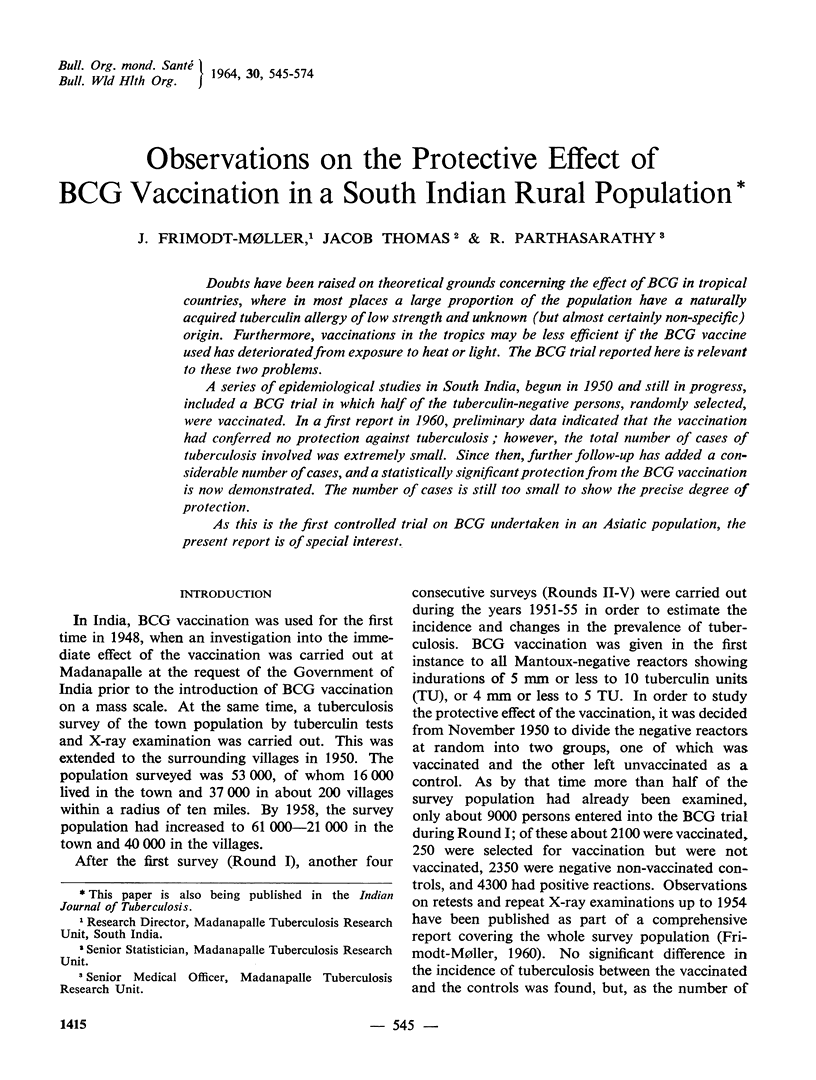
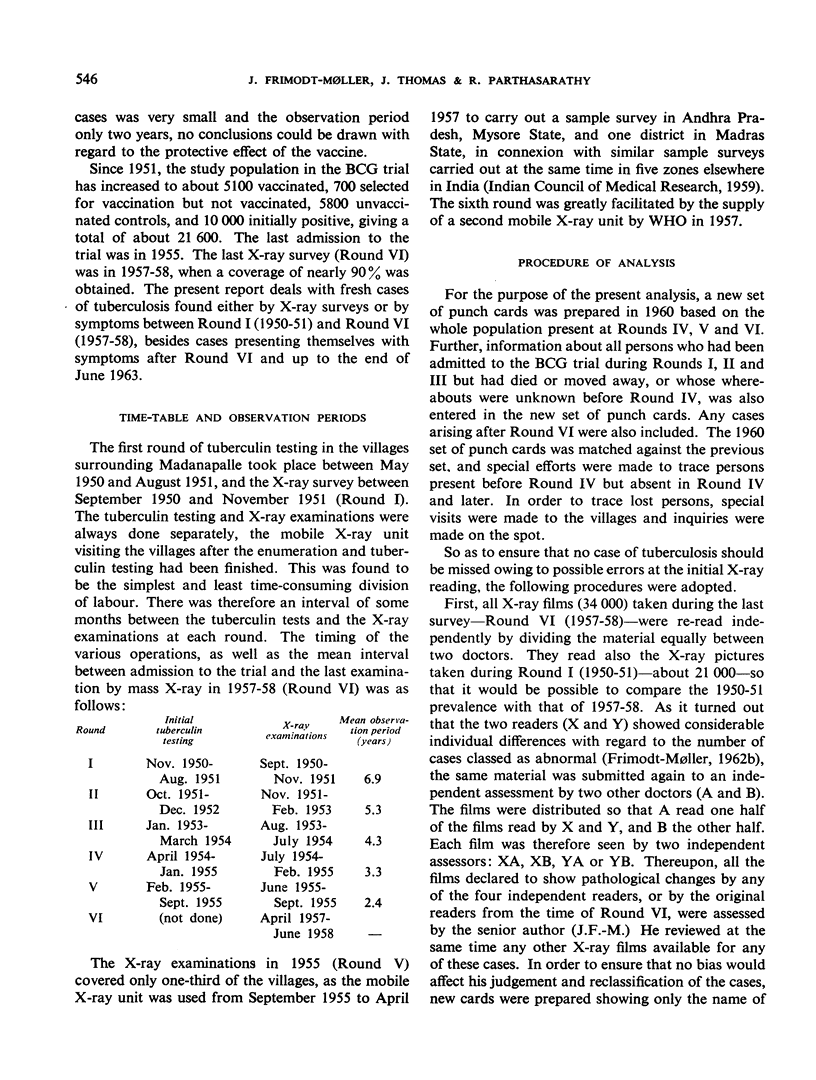
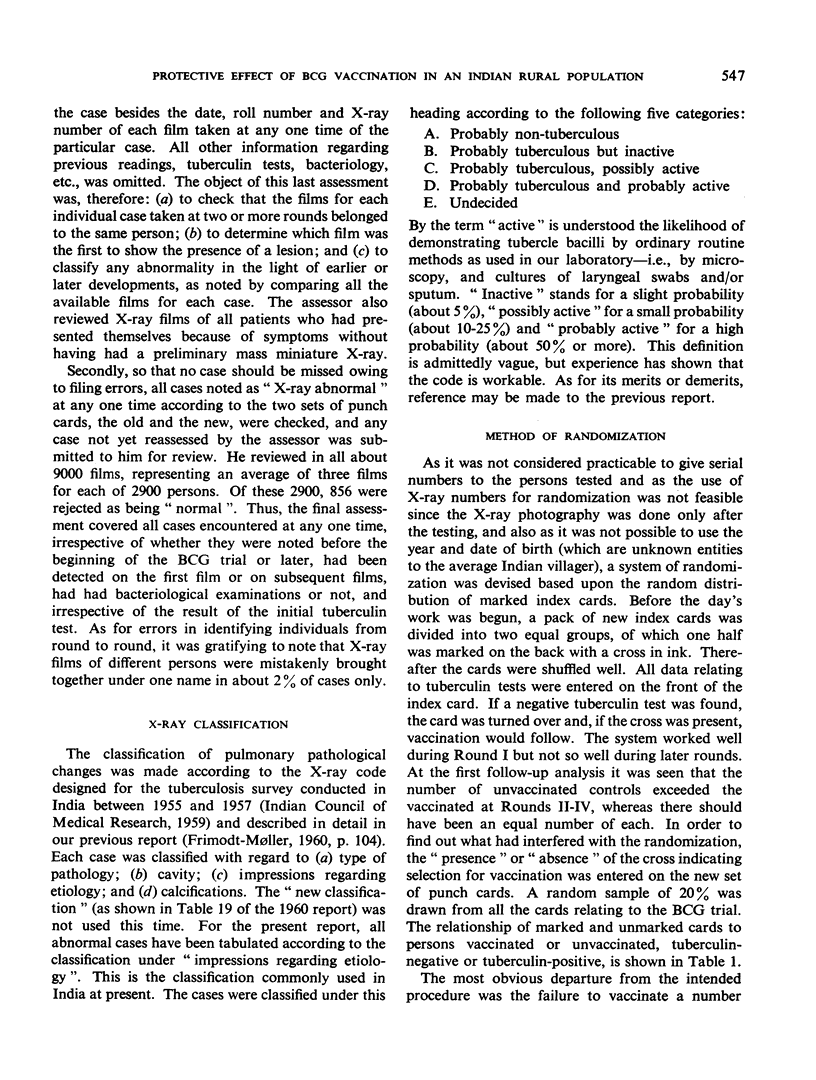
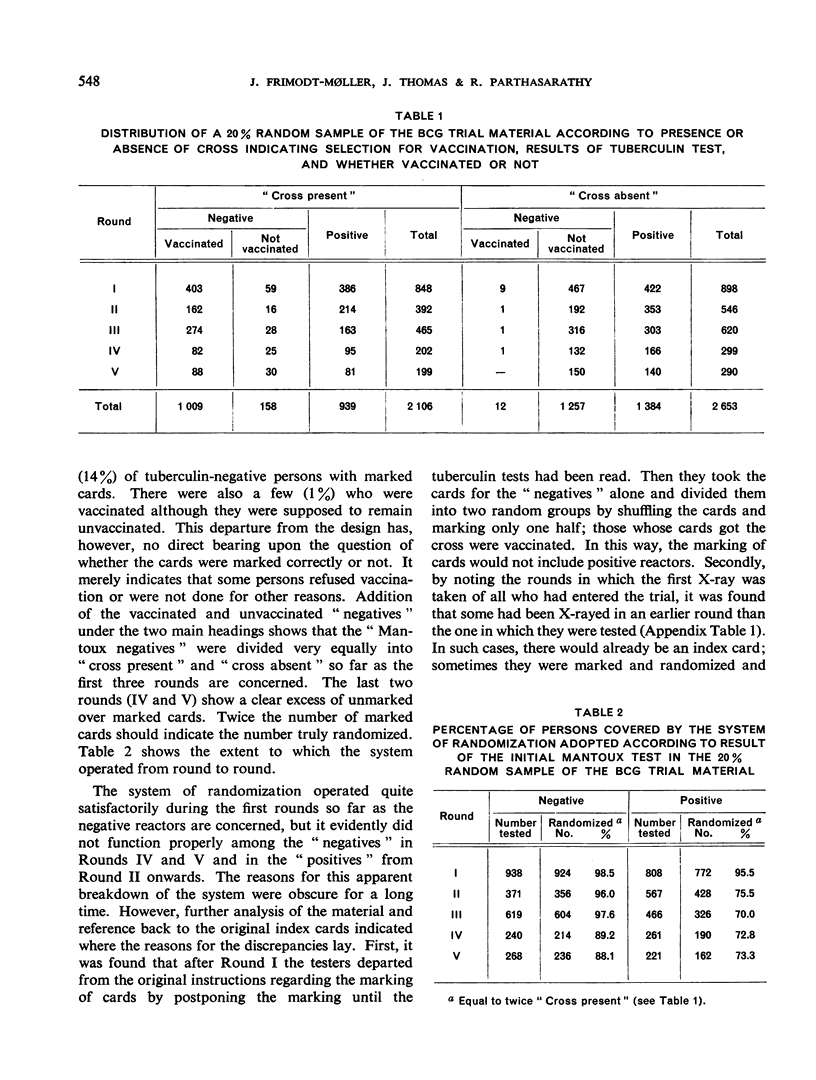
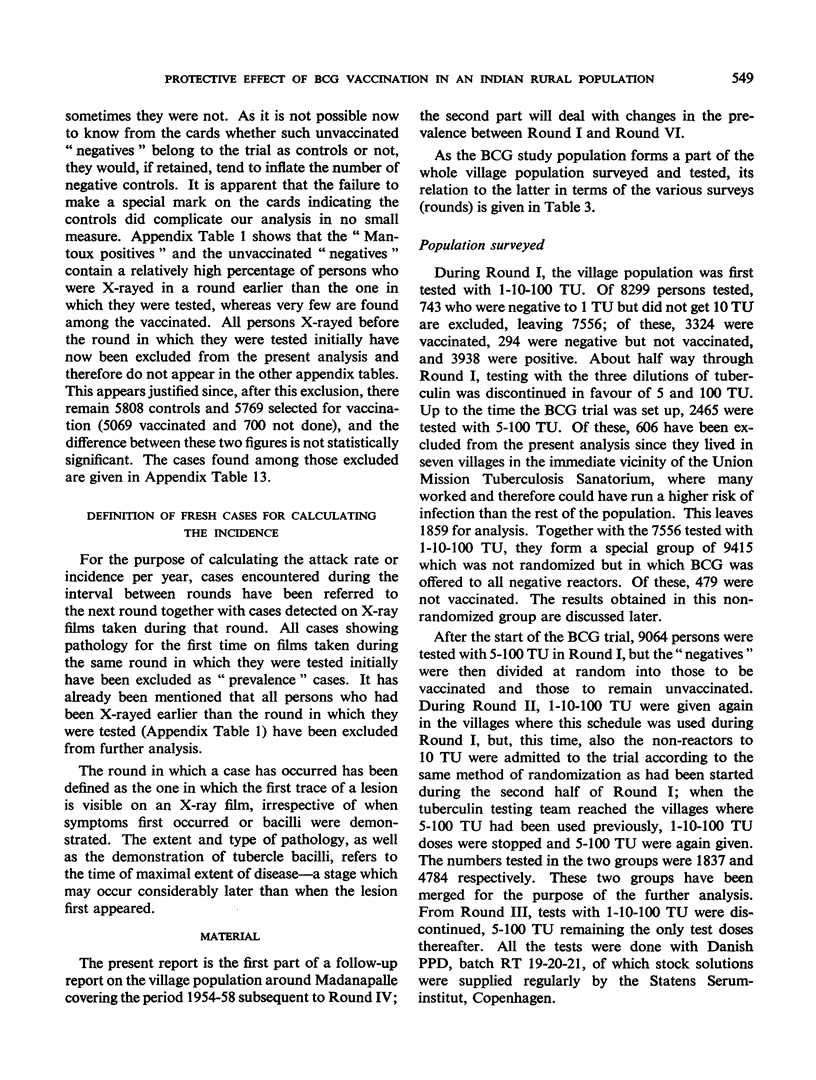
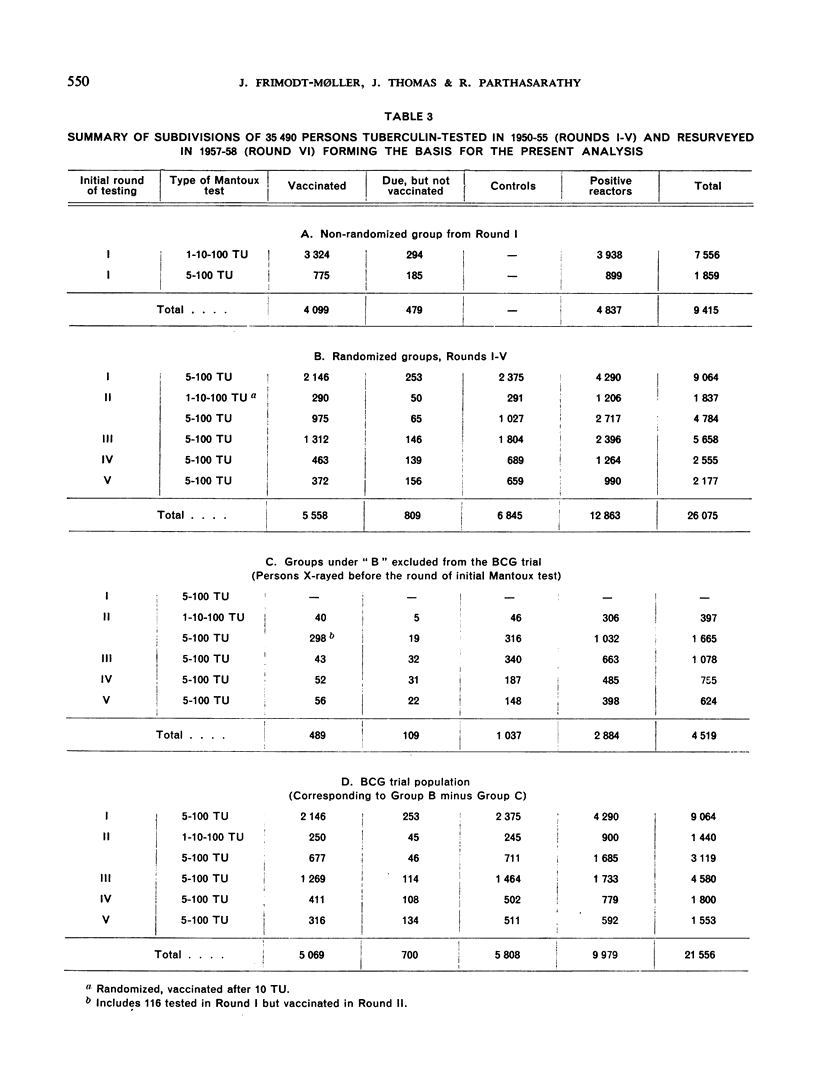
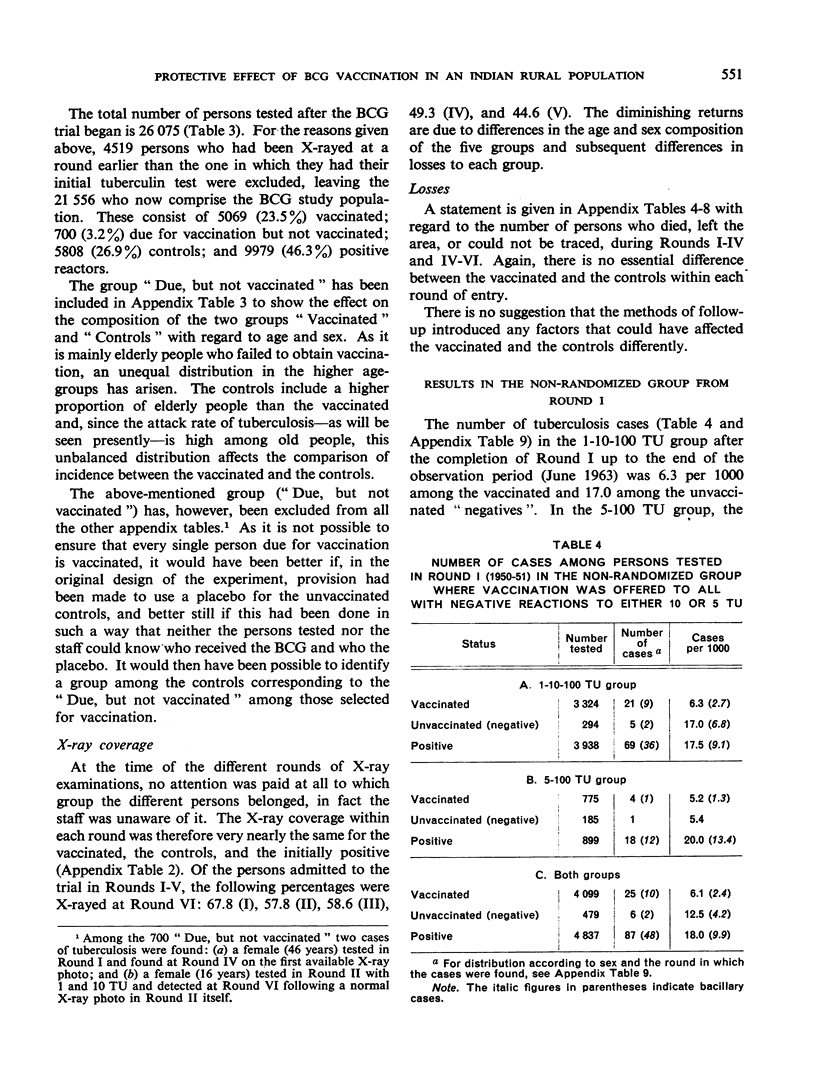
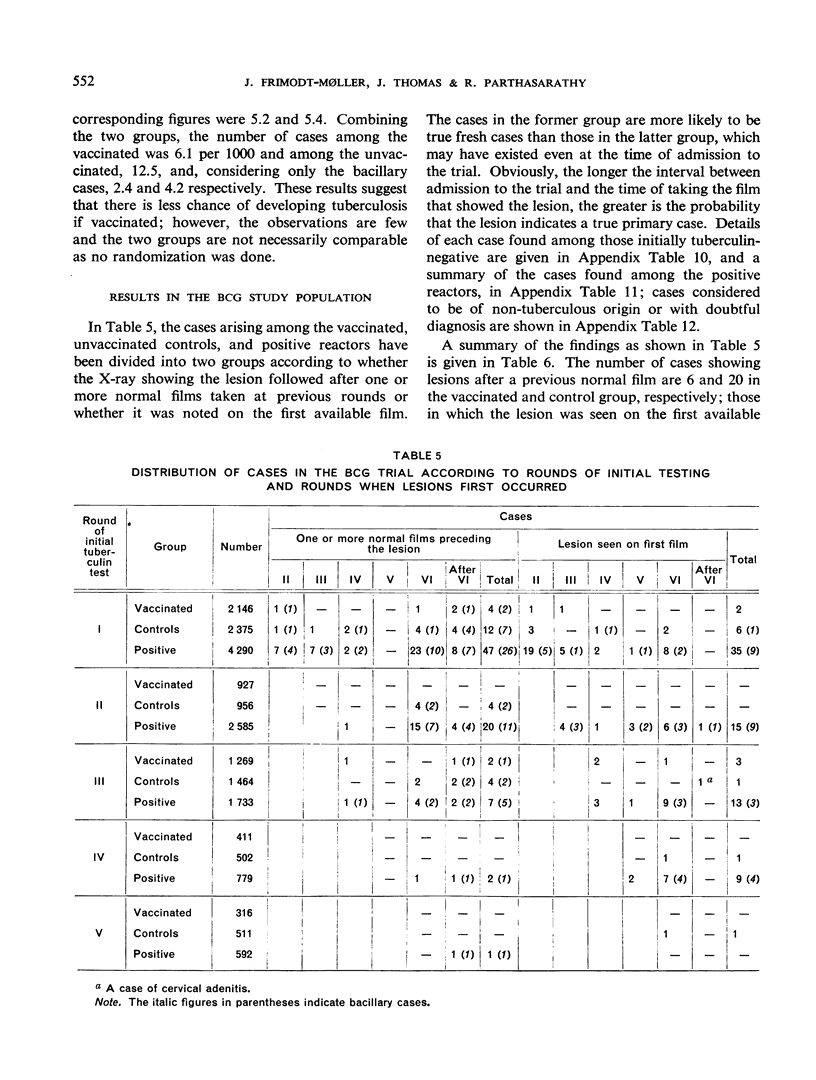
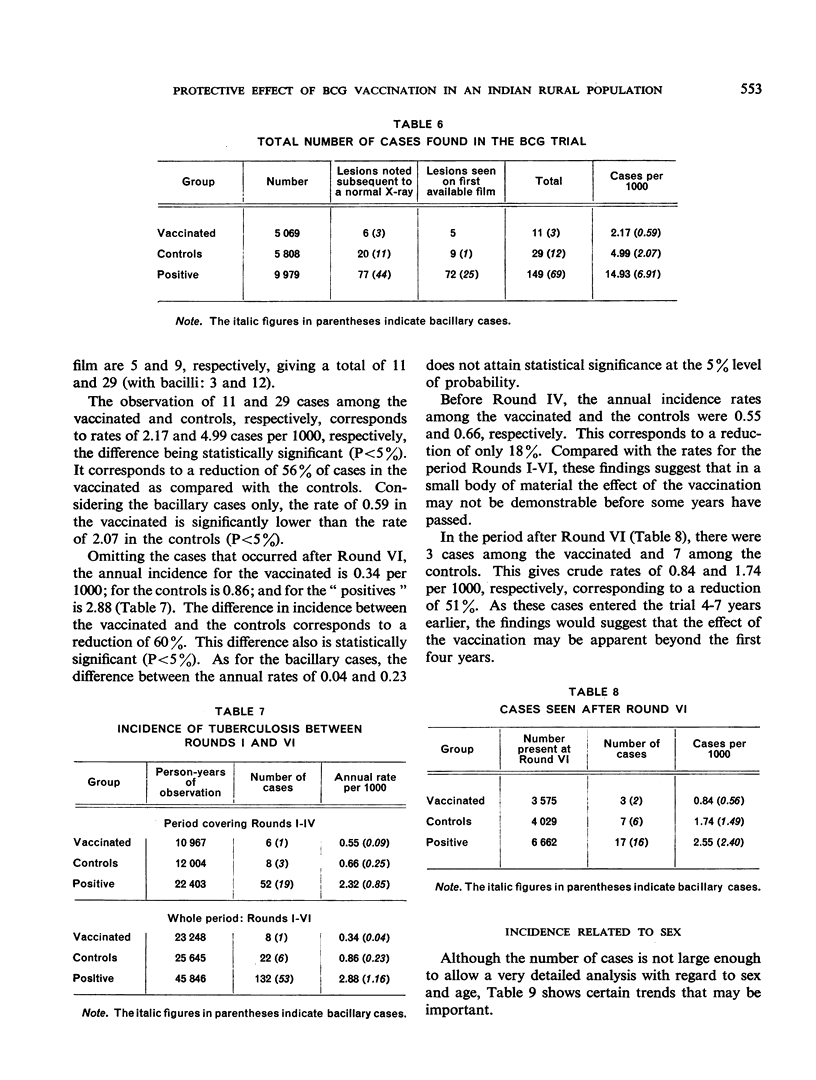
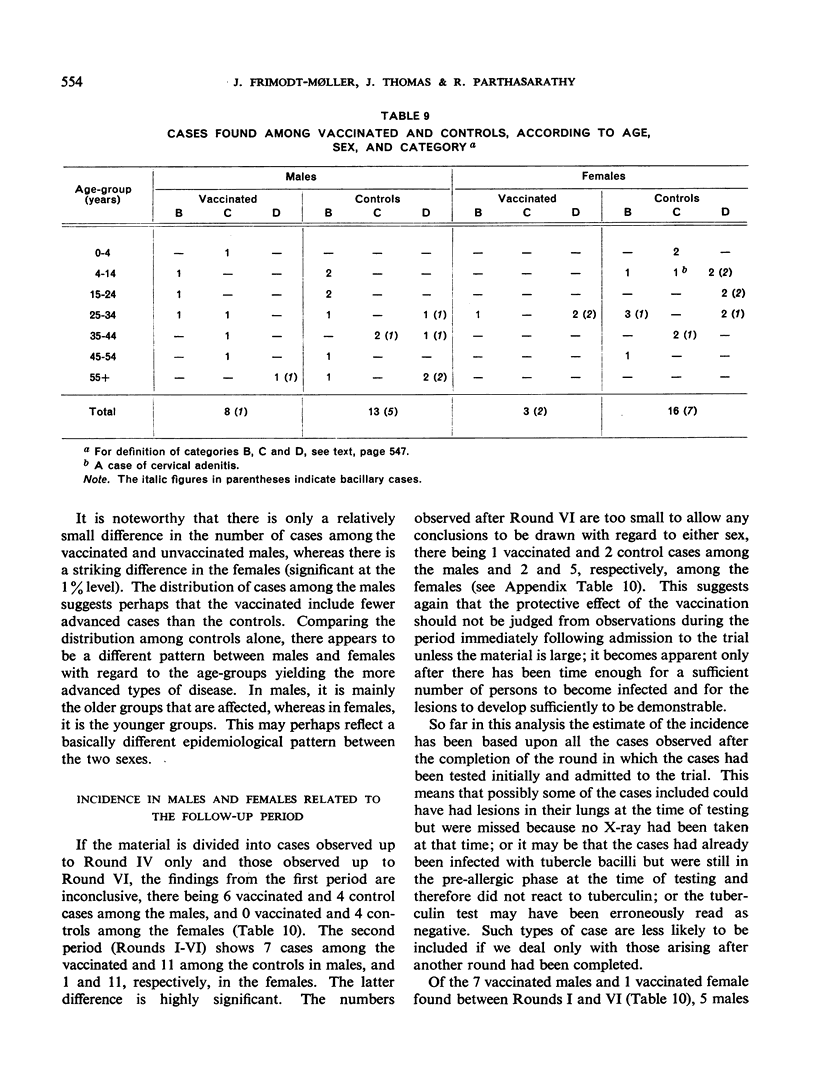
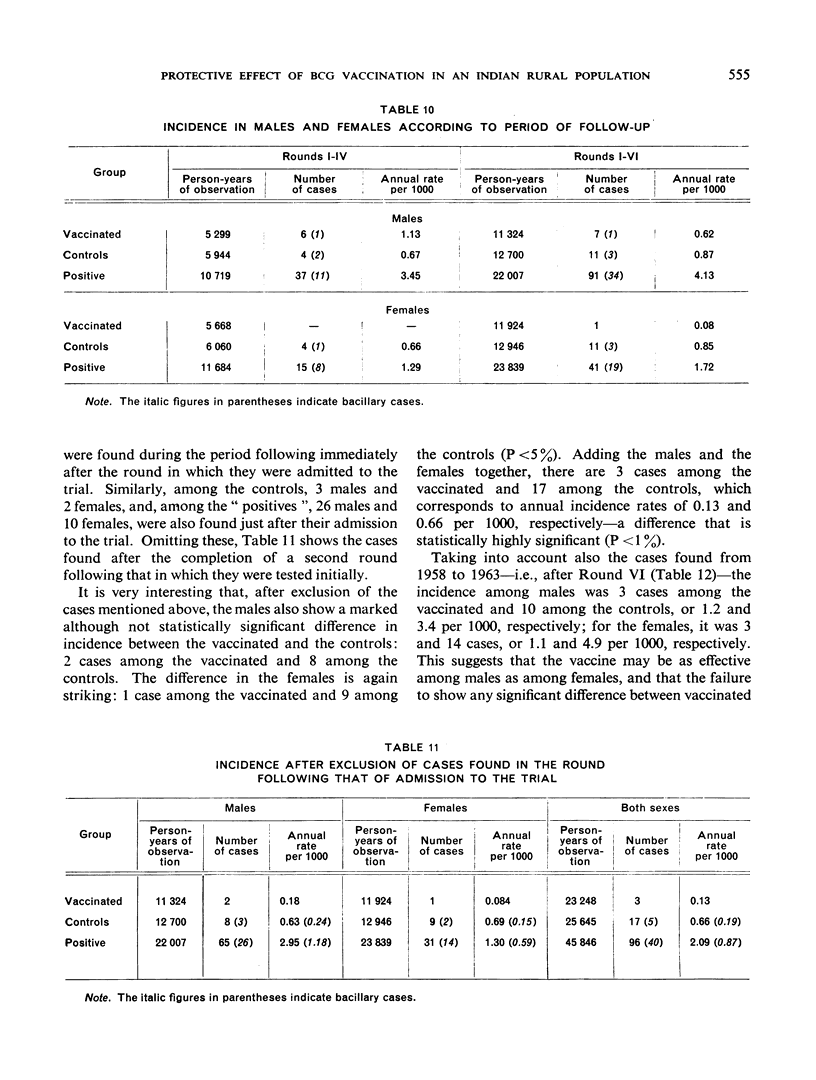
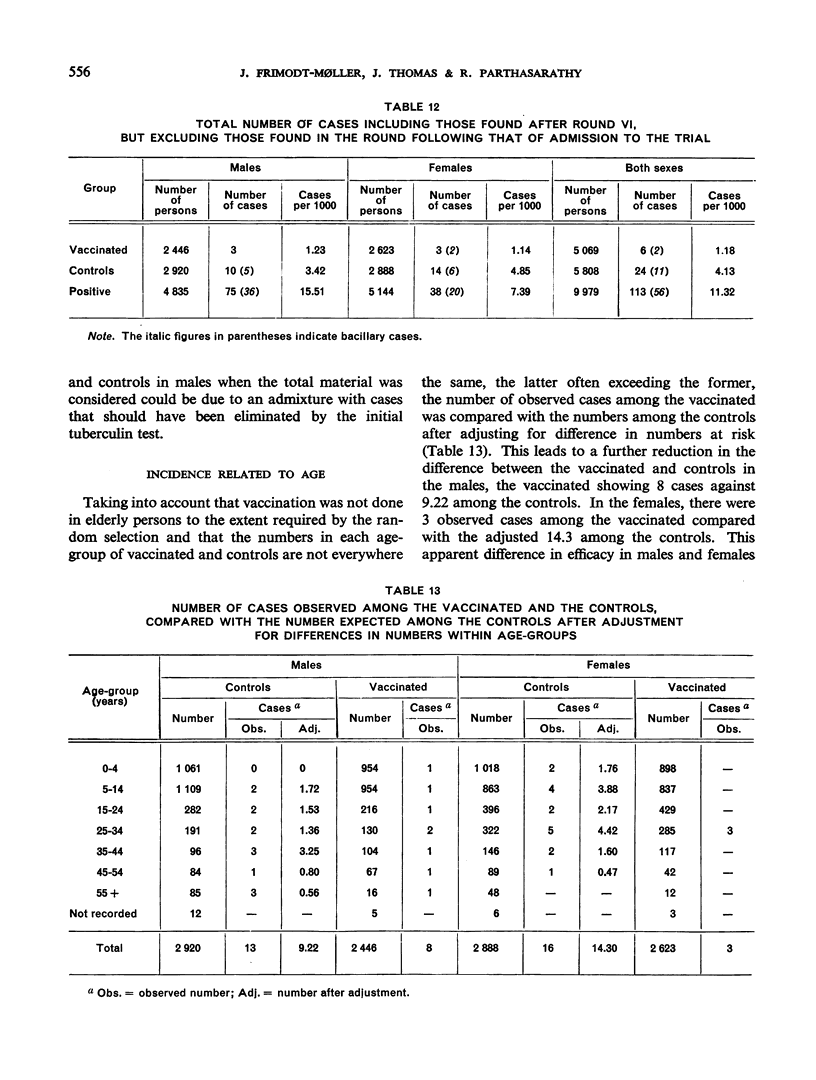
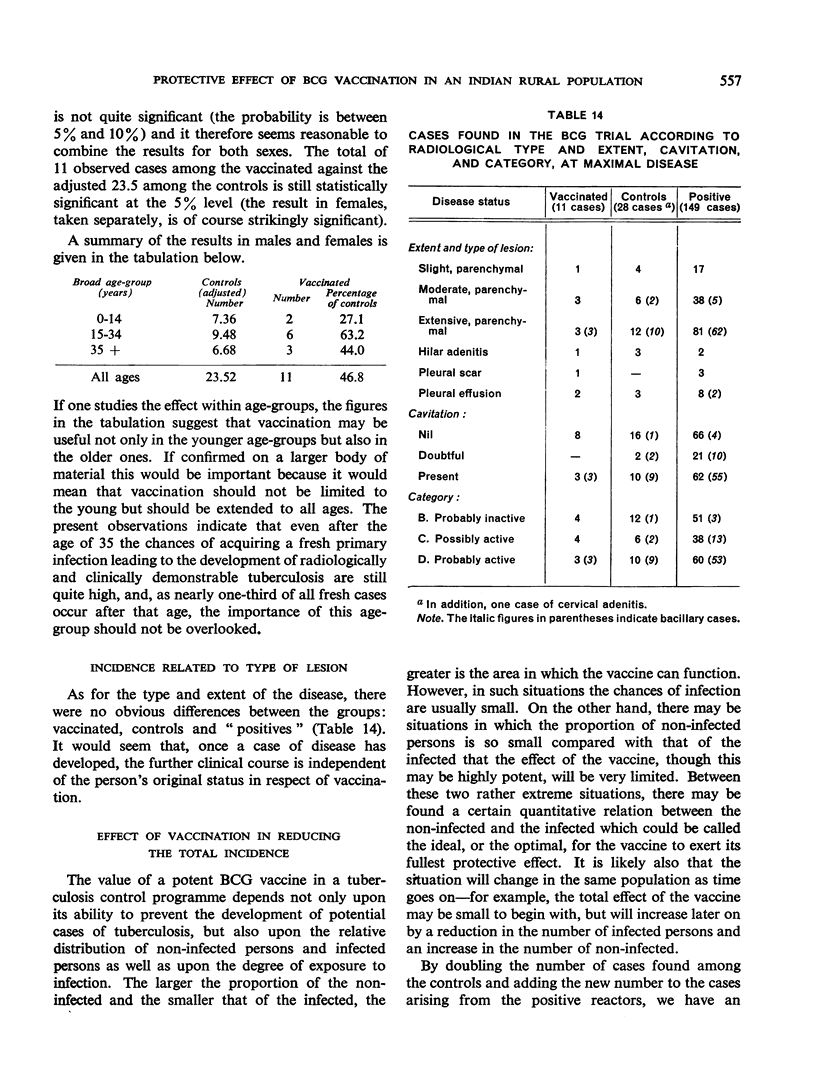
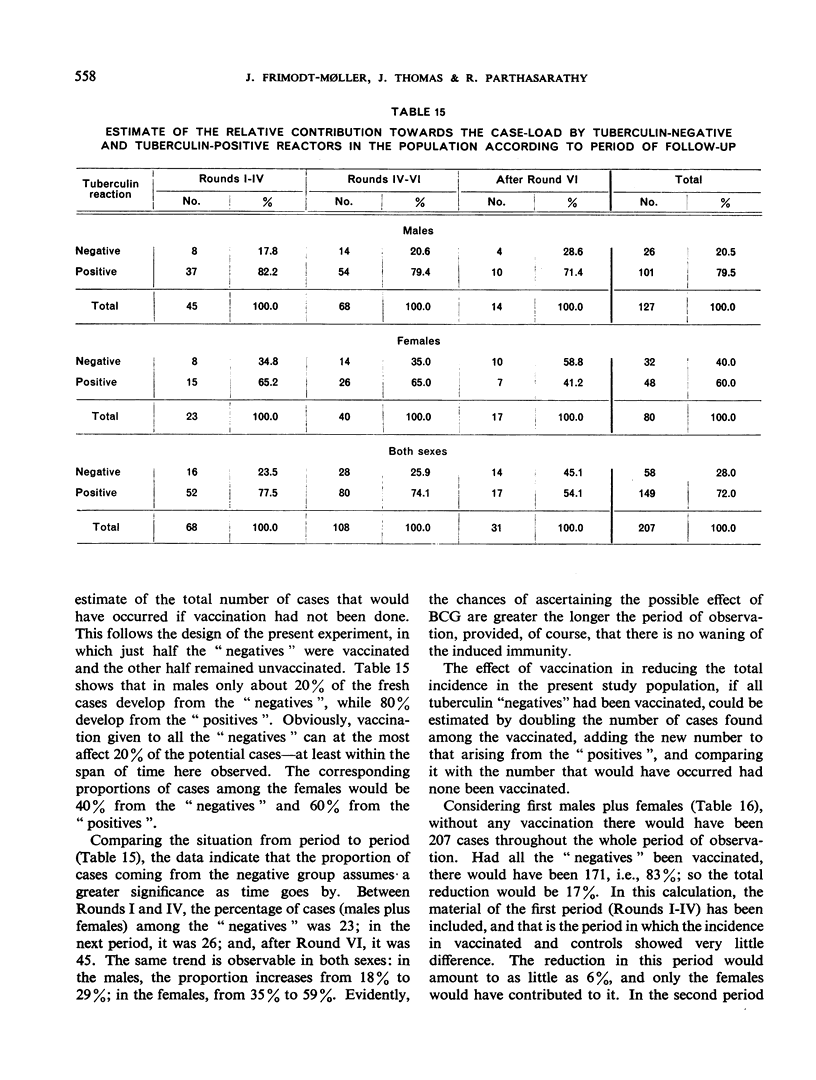
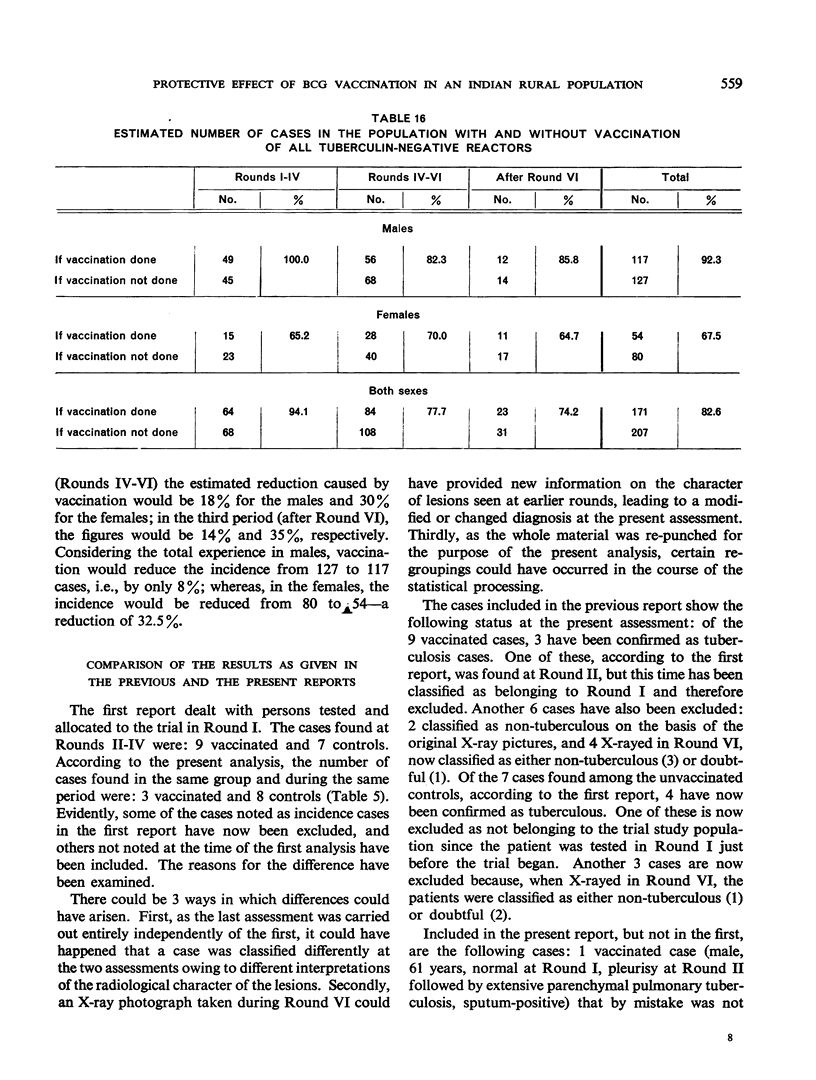
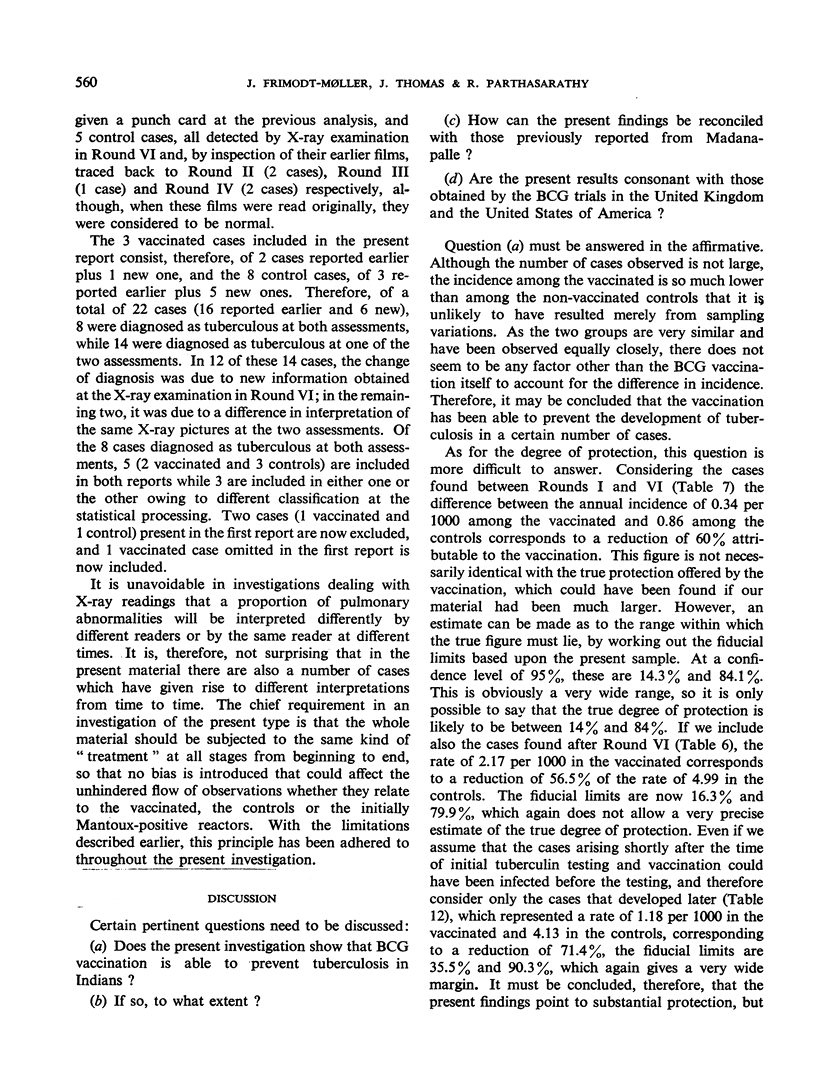
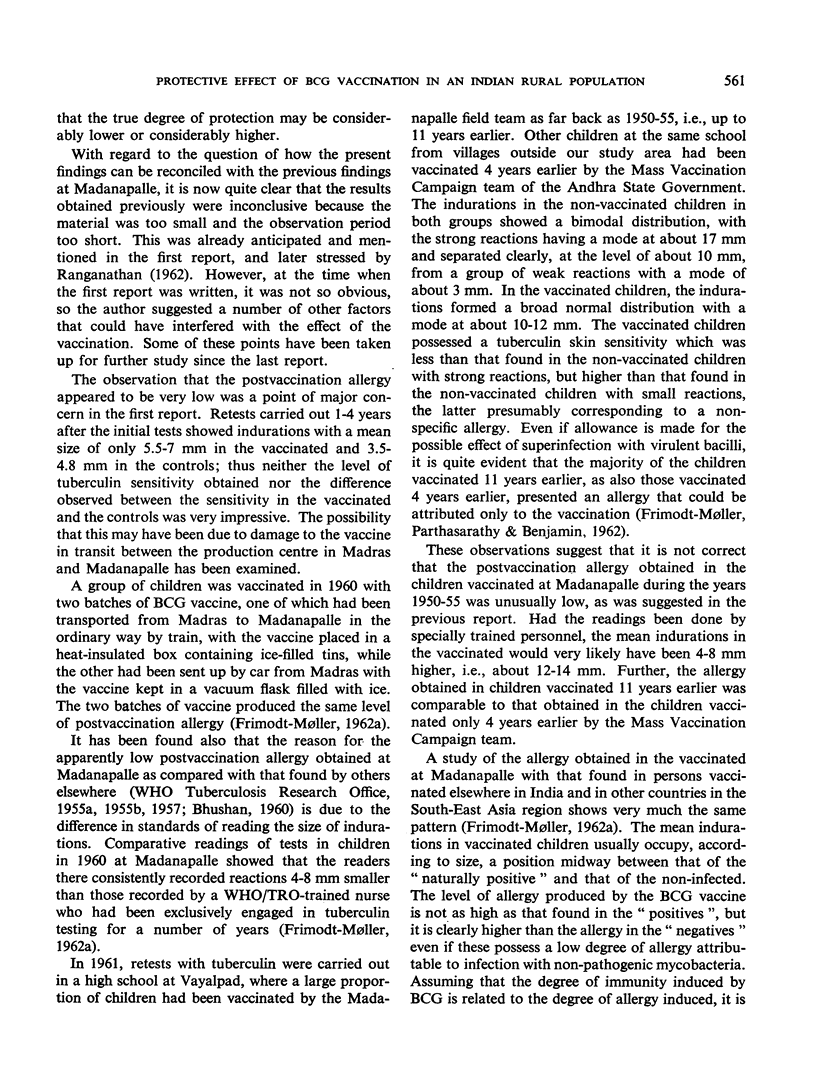
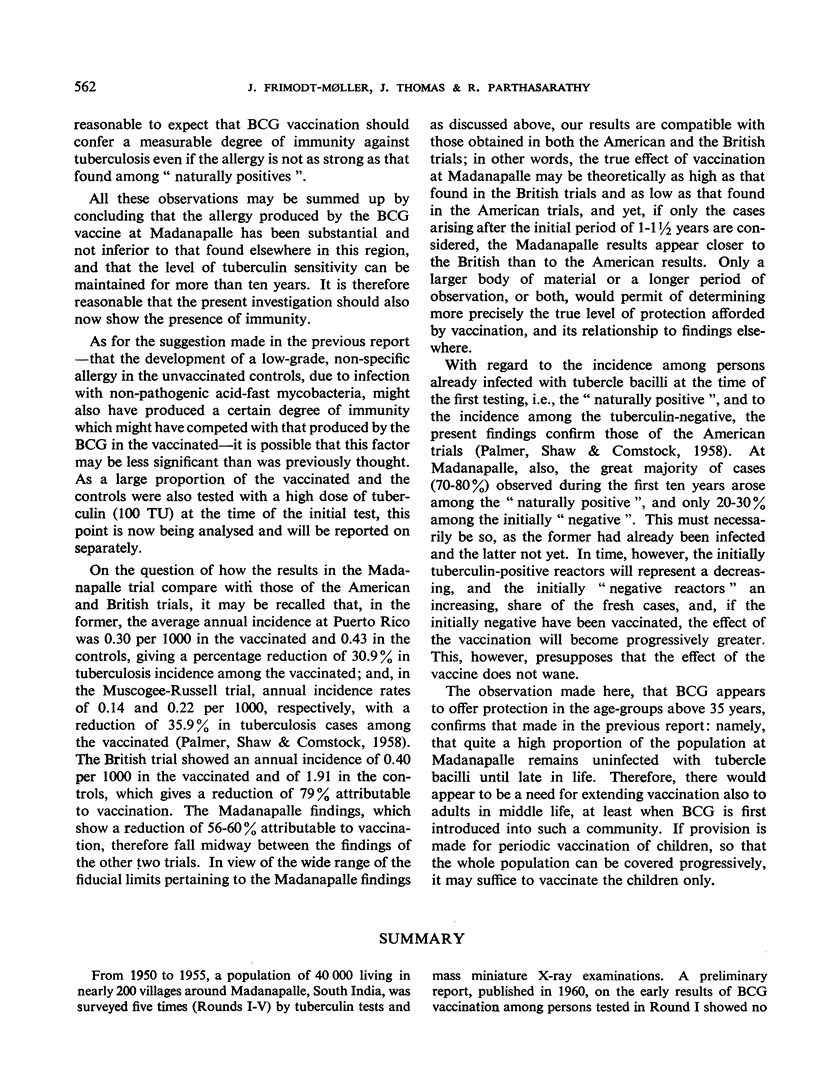
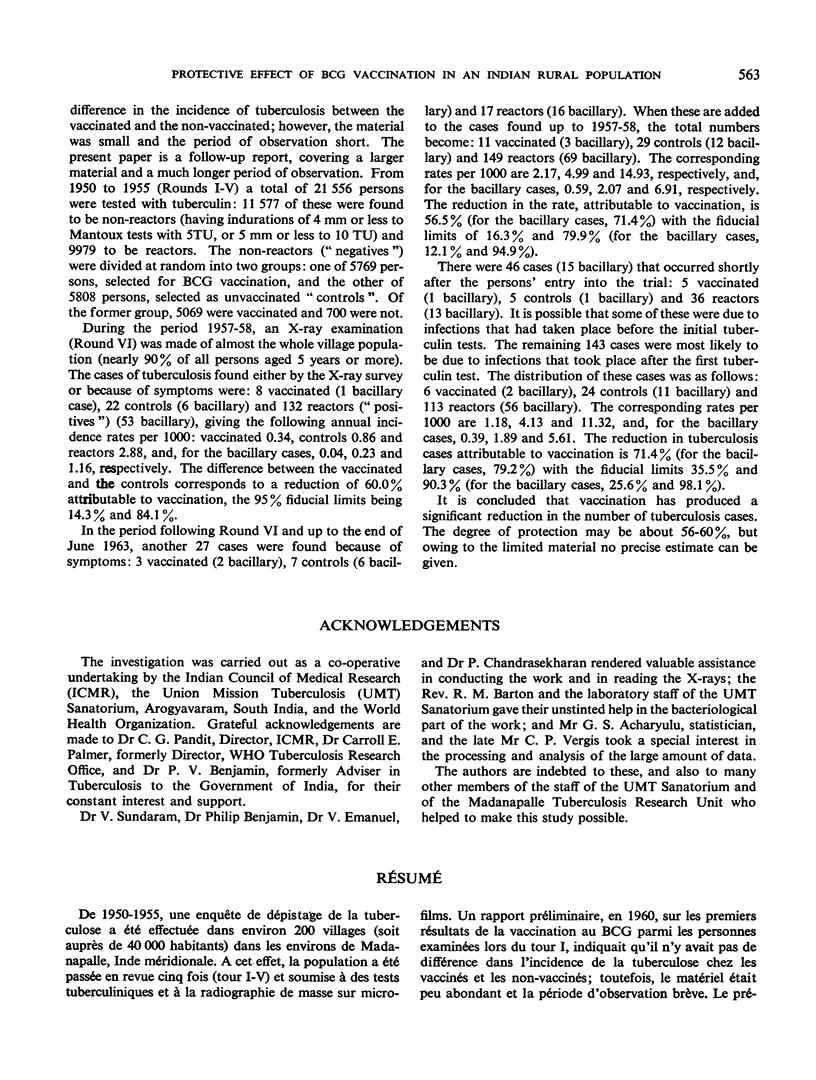
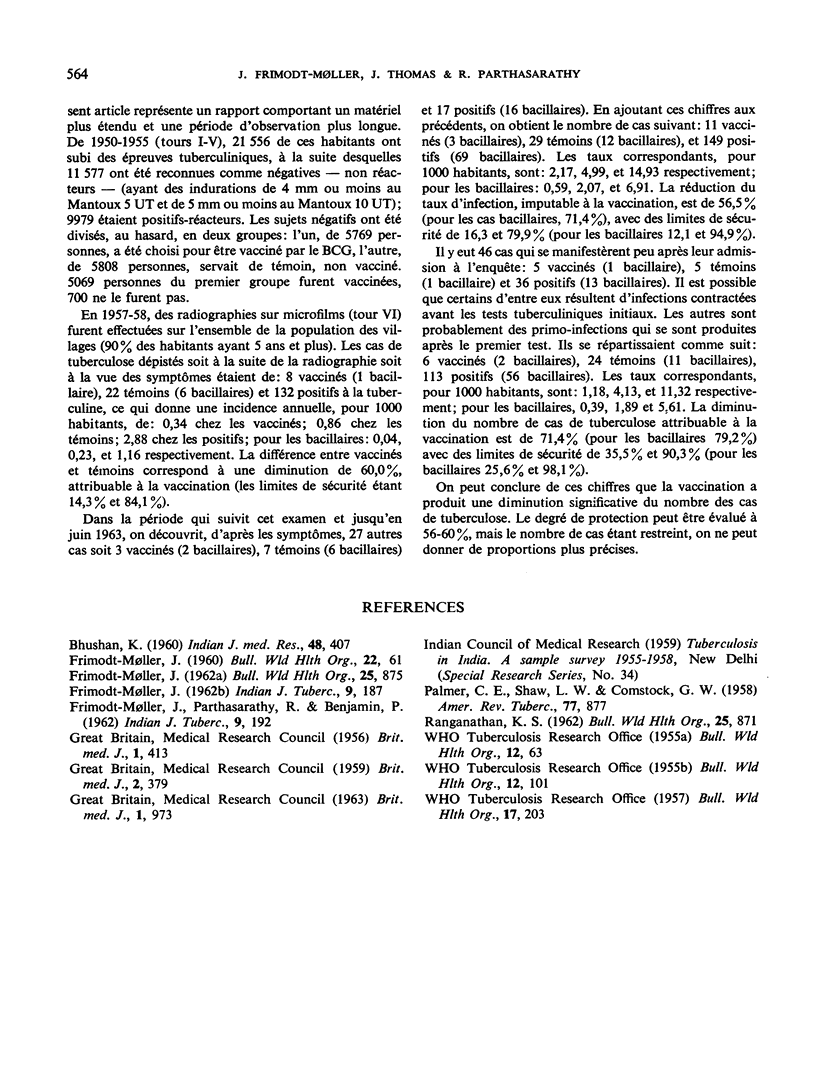
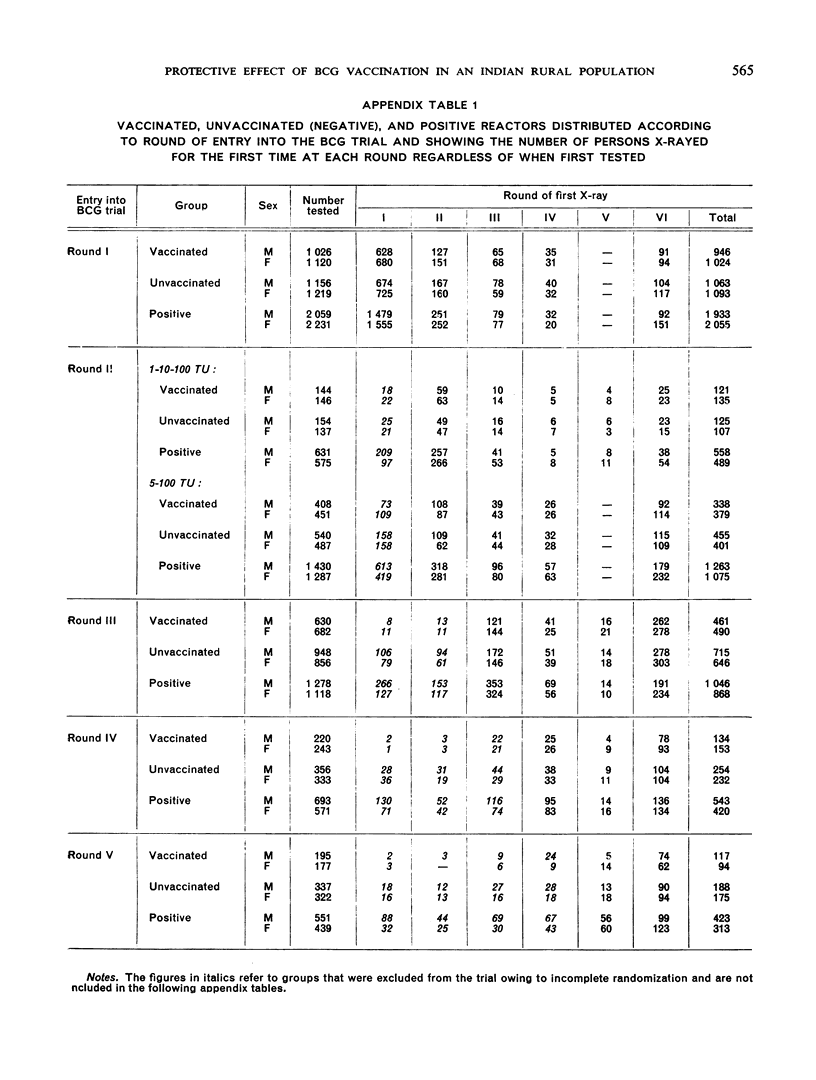
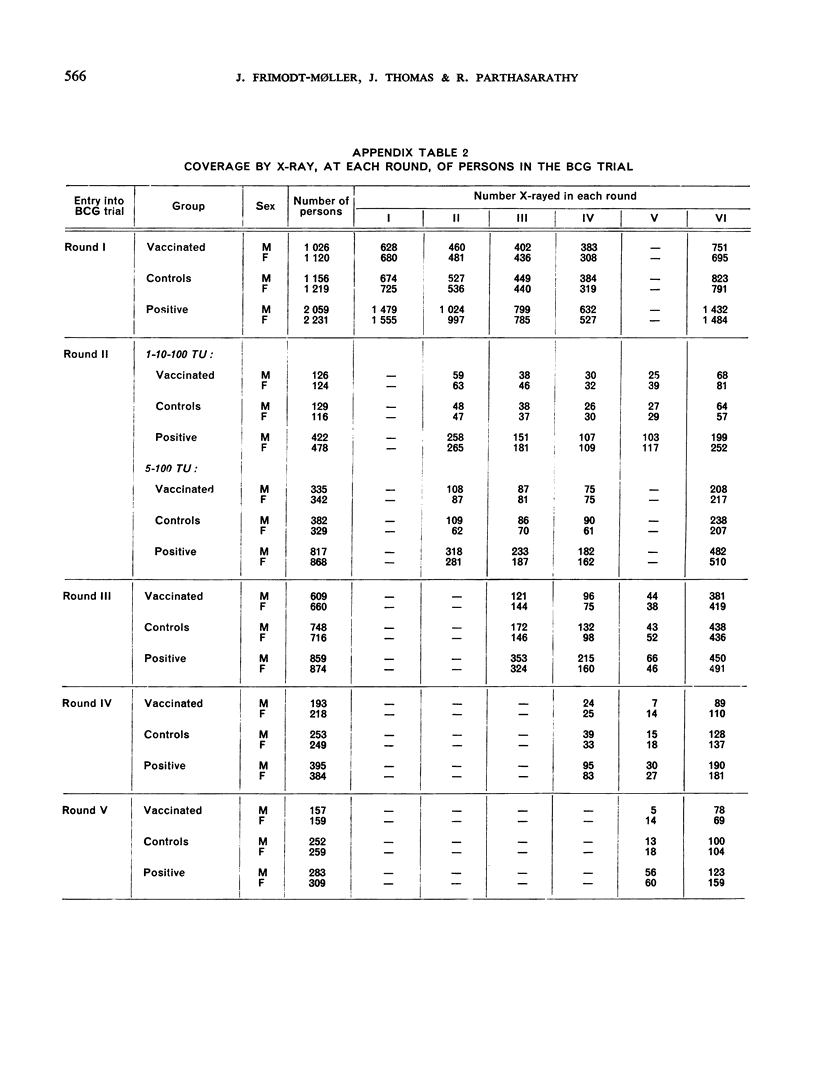
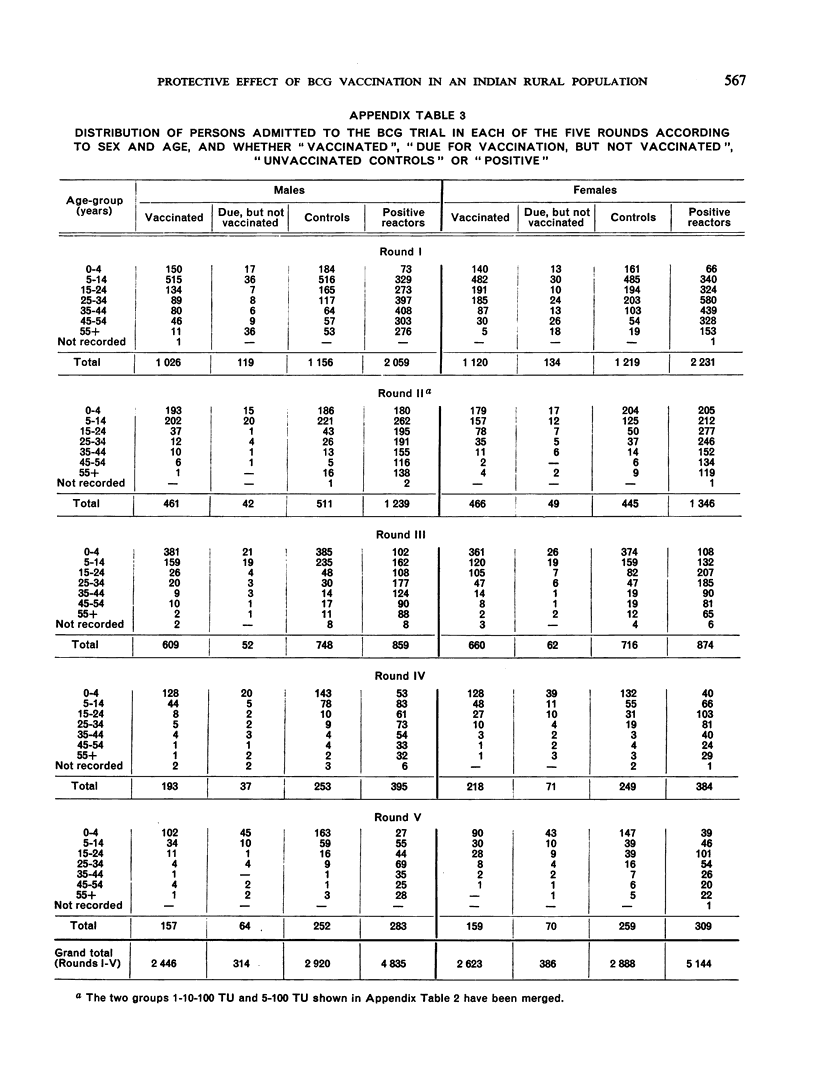

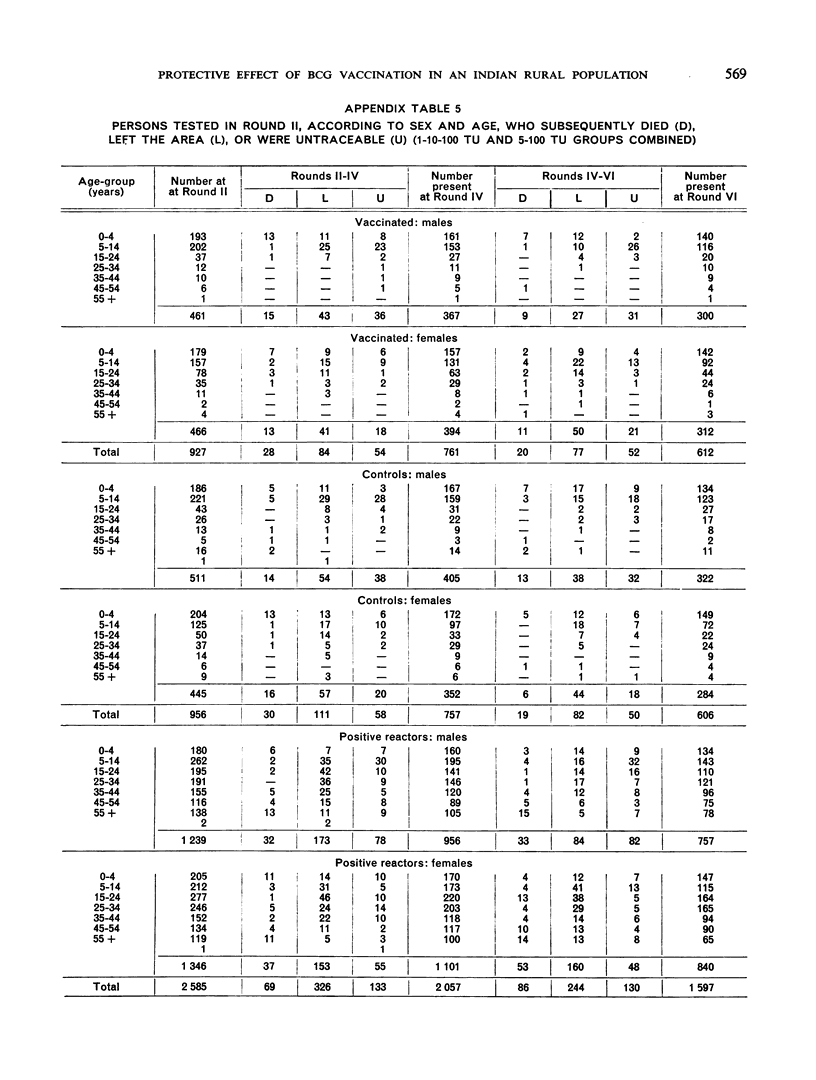
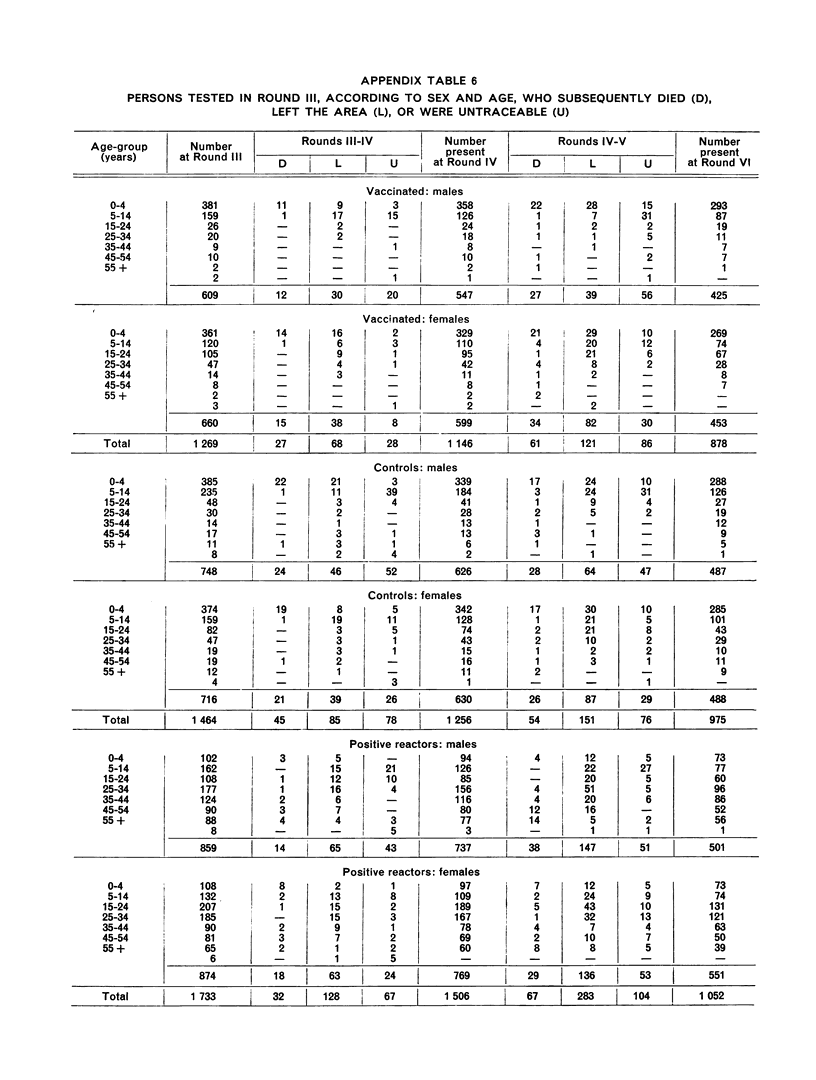
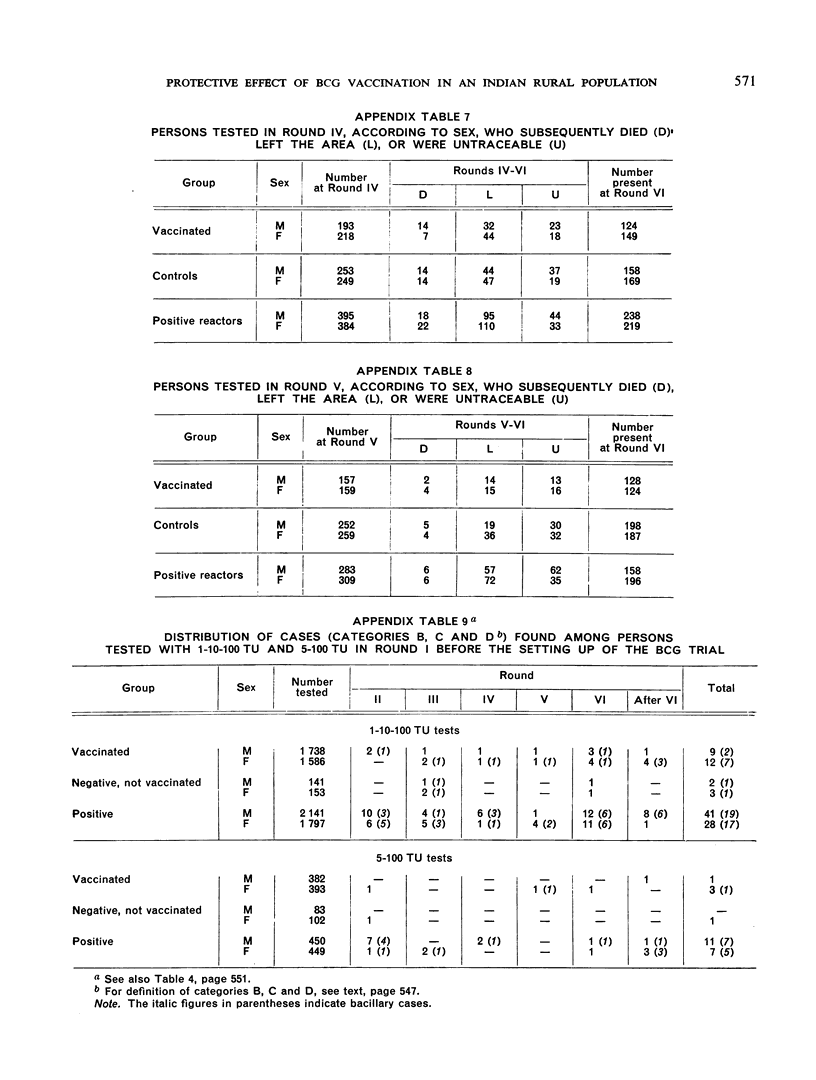
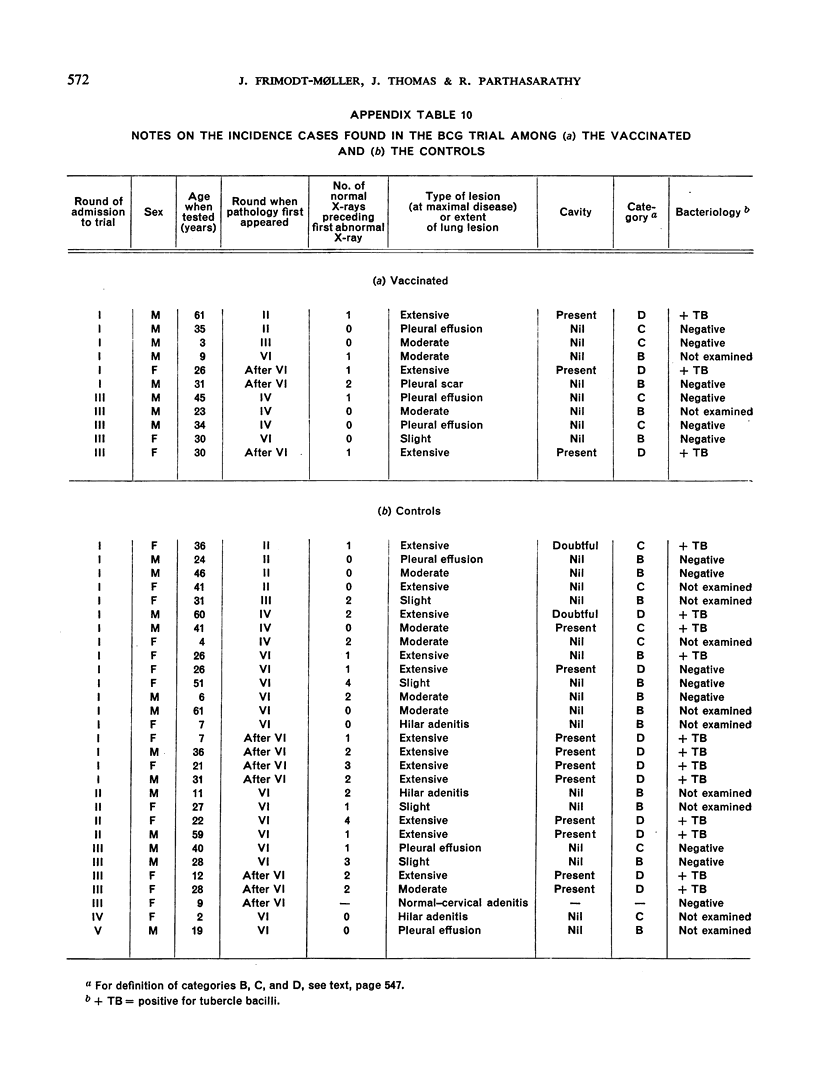
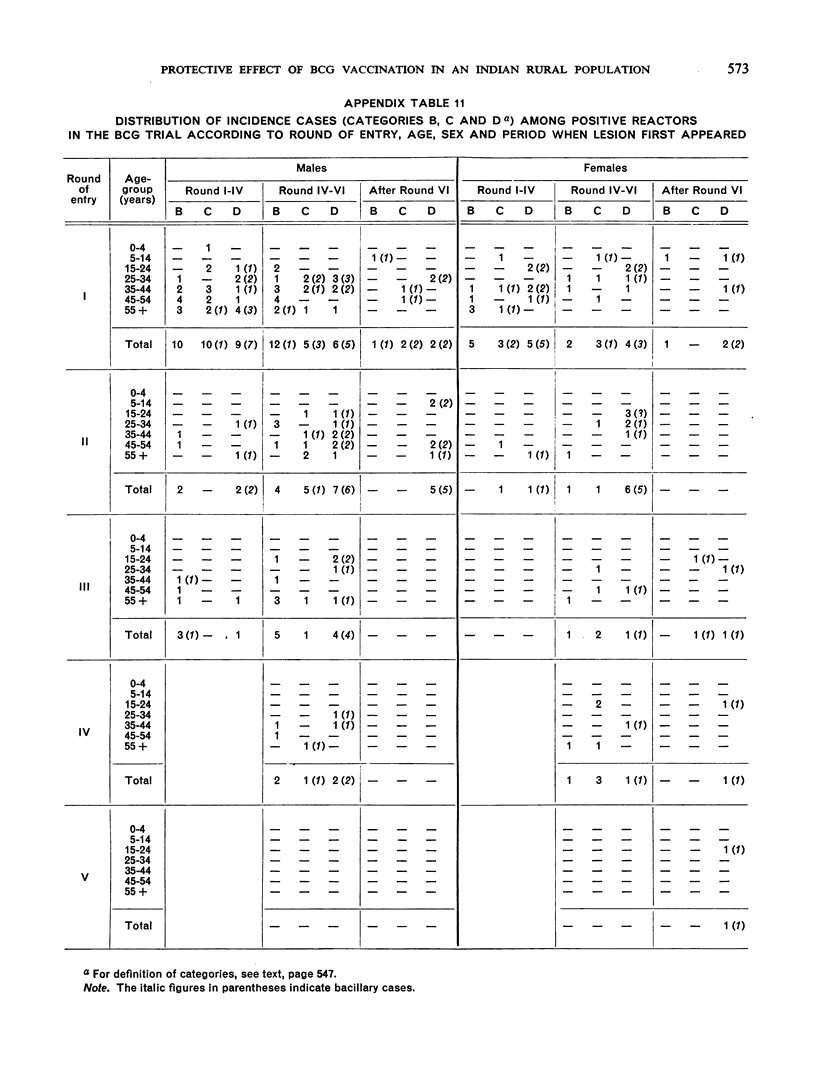
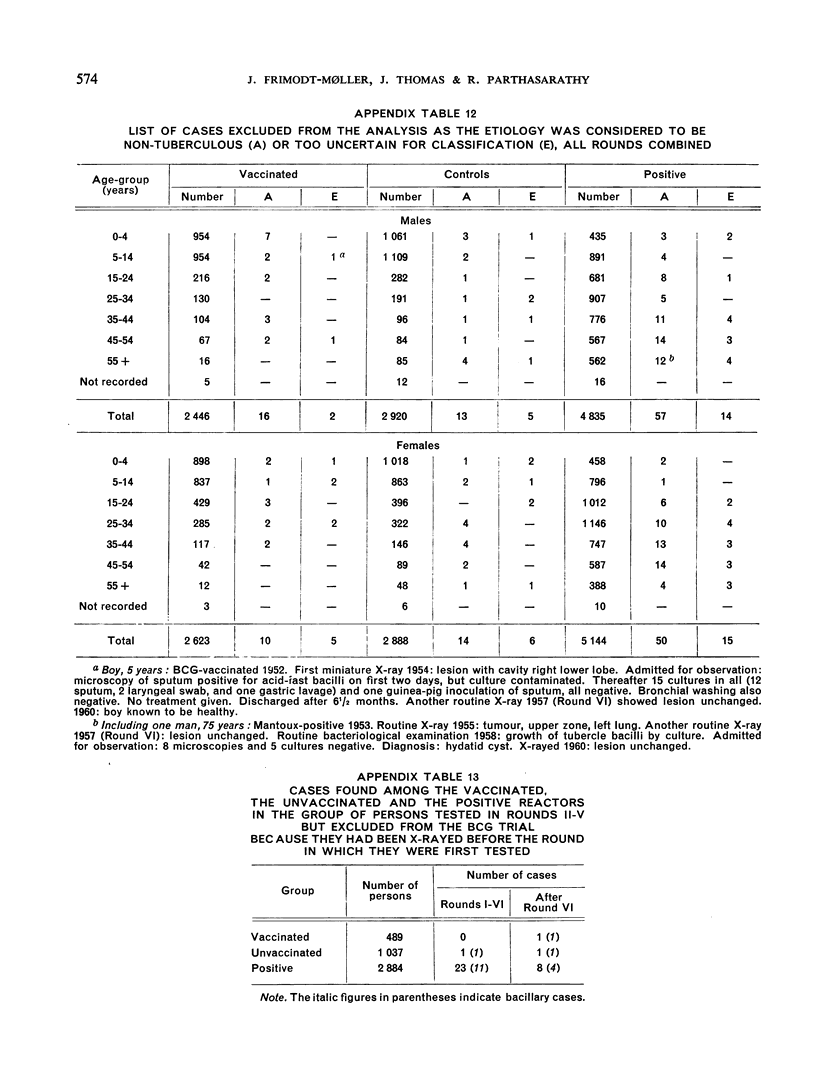
Selected References
These references are in PubMed. This may not be the complete list of references from this article.
- FRIMODT-MOLLER J. A community-wide tuberculosis study in a South Indian rural population, 1950-1955. Bull World Health Organ. 1960;22:61–170. [PMC free article] [PubMed] [Google Scholar]
- PALMER C. E., SHAW L. W., COMSTOCK G. W. Community trials of BCG vaccination. Am Rev Tuberc. 1958 Jun;77(6):877–907. doi: 10.1164/artpd.1958.77.6.877. [DOI] [PubMed] [Google Scholar]
- RANGANATHAN K. S. A critical examination of a study of tuberculosis in Madanapalle, South India. Bull World Health Organ. 1961;25:871–881. [PMC free article] [PubMed] [Google Scholar]



